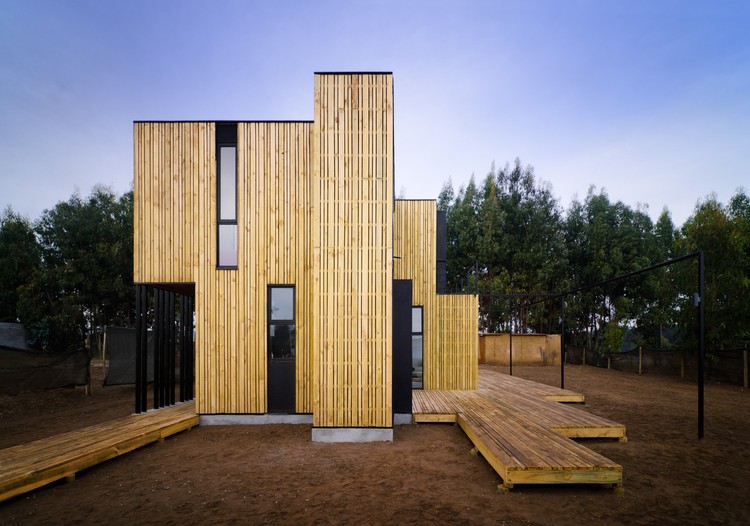Speed, efficiency, and sustainability are more crucial than ever in the current building environment. With the advantages of shorter construction periods, cheaper prices, and increased energy efficiency, modular houses have become a popular choice. Manufacturers of SIP panels, who are essential in providing the fundamental construction elements that enable modular housing, are at the centre of this change.
Why SIP Panels Are Important And What They Are
High-performance building materials known as structural insulated panels (SIPs) are made up of two structural facings, usually oriented strand boards (OSB), encasing an insulating foam core. These panels are perfect for modular construction because they combine strength, insulation, and simplicity of installation.
SIP panel manufacturers manufacture panels according to exacting requirements, guaranteeing that every component fits perfectly into a prefabricated design. Since modular houses are constructed in regulated facilities off-site, the integrity, effectiveness, and durability of the final product are directly impacted by the precision and calibre of SIP manufacture.
Modular Home Energy Efficiency Improvement
One of the main benefits of employing SIPS in modular homes is their outstanding energy efficiency. By reducing thermal bridging, SIPs’ tight construction helps homeowners save a significant amount of money on heating and cooling costs. Manufacturers are always improving their manufacturing processes, adding environmentally friendly materials, and creating insulation systems that exceed legal specifications.
SIP-based modular houses are an appealing choice for purchasers looking to reduce their carbon footprints because of their emphasis on energy efficiency, which is in line with rising environmental concerns. For external walls and roofs that are subjected to more severe weather, the use of metal insulated panels in specific modular applications may further improve insulation and durability.
Accurate Production In A Regulated Setting
The accuracy attained in a factory-controlled environment is a crucial characteristic that distinguishes SIP panel manufacture. Manufacturing facilities, as opposed to conventional building sites, function in predictable environments that provide precision and quality assurance.
This strategy reflects the advantages of controlled environment panels, which are used in cleanrooms, labs, and cold storage. Such accuracy is crucial in modular housing since any discrepancies might cause delays in on-site construction or jeopardise the structure’s functionality. To produce panels that precisely match specifications, SIP manufacturers use sophisticated equipment, computer-aided design (CAD) programs, and stringent quality control procedures.
Sturdiness, Longevity, And Strength
Manufacturers of SIP panels contribute to the overall strength and longevity of modular houses, as well as their energy efficiency and speed. SIPs are designed to resist warping, support large loads, and maintain their insulating qualities over many years.
Adding metal insulated panels or hybrid SIP systems may provide houses in areas with harsh weather with more defence against moisture, wind, and temperature changes. To give homeowners peace of mind about their investment, manufacturers thoroughly test panels to ensure they meet or surpass local building rules and performance criteria.
Fulfilling The Increasing Need For Inexpensive Housing
As the demand for housing increases, especially in urban and suburban regions, modular houses provide a quicker and more affordable alternative. To satisfy these demands, SIP panel manufacturers are essential since they can produce panels in large quantities without compromising quality.
Manufacturers are extending the use of modular construction technology with innovations like the addition of controlled environment panels for specialised housing projects, such as healthcare facilities or homes with temperature-sensitive areas.
SIP Panels’ Prospects In Modular Construction
Future developments in SIP technology will probably concentrate on enhancing insulation efficiency, incorporating smart home functionality, and using more environmentally friendly materials. SIPs’ durability and design options will be further increased when combined with other cutting-edge materials, such as metal-insulated Panels.
As modular housing becomes more popular among builders, architects, and homeowners, collaboration with top-notch SIP panel producers will continue to be crucial. Their proficiency in quality assurance, material innovation, and precise production guarantees that modular houses will always establish new standards for sustainability, comfort, and efficiency.
Conclusion
SIP panel producers are important facilitators of the contemporary modular housing revolution, not only suppliers. They contribute to th creation of houses that are more sustainable, quicker to construct, and constructed to endure for generations by providing premium, energy-efficient, and precisely manufactured panels.

